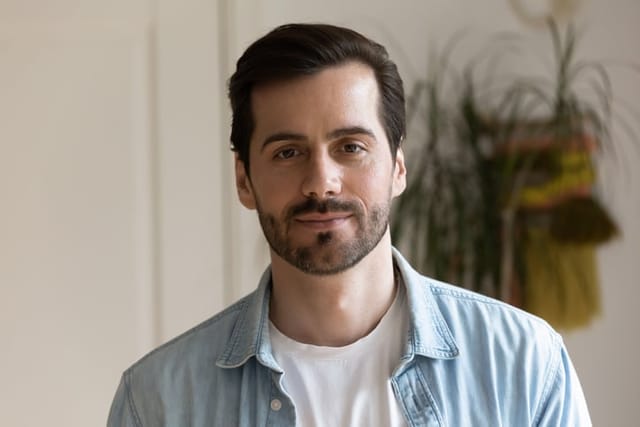From climate change debates to vaccine hesitancy, a growing distrust of science is rife in American society. Understanding the roots of this skepticism is the only way to start building bridges and addressing public health and environmental challenges that depend on scientific consensus. Here’s why this trust is fading.
1. Science keeps changing its mind.

One day eggs are bad for you, the next they’re a superfood. First we’re headed for an ice age, now the planet’s overheating. Is it any wonder people are skeptical when scientists can’t seem to make up their minds? The reality is, science is an ongoing process of discovery, not a collection of eternal truths. As new evidence emerges, conclusions change — that’s how progress happens, the University of Michigan School of Public Health points out. But to a public wanting black-and-white answers, these reversals can feel like scientists are just winging it.
You may also like: 16 Habits Of People Who Are More Attractive Than They Think
2. Science has been wrong before.

Thalidomide, lobotomies, radioactive health tonics — history is littered with examples of scientific stuff-ups that did real harm. Sure, the scientific method is designed to be self-correcting over time. But once your field has told pregnant women to take a pill that results in babies with flippers for limbs, it’s going to take more than “our bad, we’ll do better next time” to regain trust. When science messes up, the fallout isn’t just academic — it’s personal.
Don’t miss out – follow Bolde for exclusive content daily
3. Scientists are only human.

Lab coats and Ph.D.s don’t make you immune to the same biases, blind spots, and temptations as the rest of us mere mortals. From fudged data and manipulated studies to shoddy peer review and straight up fraud, cases of scientific misconduct remind us that behind every “unbiased” researcher is a flawed and fallible human. Factor in the perverse incentives of publish-or-perish academia, and its clear scientific integrity isn’t always a given.
You may also like: Things You Should Never Say To Someone You Love
4. Corporations co-opt science.

Big Tobacco downplaying smoking risks. Big Oil denying climate change. Big Pharma pushing opioids. Time and again, deep-pocketed companies have cherry-picked and bankrolled studies to manufacture doubt, muddy the waters, and rig the scientific narrative in their favor. They have the means and the motive to buy the science they want people to believe. In a world where research is for sale to the highest bidder, no wonder John Q. Public is getting a bit cynical.
Don’t miss out – follow Bolde for exclusive content daily
5. Dogma beats data a lot of the time.

From evolution to vaccines to climate change, some scientific truths find themselves in the crosshairs of deeply held beliefs, identities and world views. For the true believer whose faith or ideology clashes with scientific consensus, all the peer-reviewed papers in the world won’t move the needle. Their conviction doesn’t hinge on empirical evidence — and that’s exactly the problem. Science can’t compete with the power of “I believe; therefore I am right.”
You may also like: Reasons Your Adult Children Want Nothing To Do With You
6. The media muddles the message.

Looking for nuance and caveats? You won’t find it in your Facebook feed. Blame the click-hungry media for reducing complex science to rage-baiting headlines, skimming studies for the sexiest soundbites, and ginning up controversies to drive ratings. But don’t forget about us content consumers and our itchy share-button fingers when a sensationalized story confirms our priors. If we’re honest, we’re all a bit complicit in the tabloidization of science.
Don’t miss out – follow Bolde for exclusive content daily
7. People don’t know what they don’t know.

Quick, define a confidence interval. Explain P-hacking. Don’t worry, I can’t do it either! Though Americans are prone to playing armchair epidemiologist these days, most of us haven’t taken a stats class since high school — if ever. The basic tools for making sense of scientific claims are not common knowledge. That lack of core competence makes non-experts more susceptible to misinformation and false claims wearing a lab coat.
You may also like: People Who Had Unhappy Childhoods Usually Develop These Traits
8. Science still has a branding problem for many people.

Pocket protectors. Coke bottle glasses. Socially awkward Sheldon Coopers. While these tired tropes are easy shorthand for lazy screenwriters, they do real damage to the image of scientists and science in the public imagination. They reinforce the idea that science is some nerdy, esoteric enterprise walled off from regular people and everyday life. It’s hard to trust what you can’t relate to or feel excluded from.
Don’t miss out – follow Bolde for exclusive content daily
9. Money skews motives.

You don’t have to be a wild-eyed conspiracy theorist to worry about who’s bankrolling a study and what’s in it for them. When research is funded by interested parties — from corporations to activists to government agencies — it’s fair to wonder if the fix is in. Especially when scientists are incentivized to chase grant money over truth or pressured to deliver results that please their patrons. Financial conflicts of interest aren’t just fodder for the tin-foil hat crowd.
You may also like: How A Narcissist Acts When You Start Seeing Through Their BS
10. Politics always come into play.

The social sciences have long leaned left. The halls of Big Science are lined with photos of men (yes, mostly men). And there’s no denying the government is the 800-pound gorilla when it comes to research funding and policy. Mix it all together, and you’ve got a recipe for a “liberal elite” narrative that turns science into a partisan punching bag. Never mind that microbes and atoms don’t give a fig about political affiliations. Optics matter in our polarized times.
Don’t miss out – follow Bolde for exclusive content daily
11. Scientists (and scientific organizations) aren’t always great communicators.

From jargon-filled journal articles to clunky conference presentations crammed with caveats, it’s no secret that scientists can struggle to share their work in clear, compelling, accessible ways to non-expert audiences. This failure to meet people where they are — intellectually and emotionally — leaves an information vacuum that confident charlatans and oversimplified hot takes are all too eager to fill. You can’t dazzle layfolk with a p-value when a charlatan packs pizzazz.
You may also like: 15 Things To Keep To Yourself Because They’re Nobody’s Business But Yours
12. Science can feel very disconnected from real life.

From fruit fly mating rituals to muon spin in a vacuum, a lot of research doesn’t exactly scream “matters to my daily existence.” If a study’s significance isn’t apparent to the average person, it’s all too easy to shrug and say, “so what?” Yes, we need basic research to advance human knowledge, not just applied science with obvious utility. But when scientists can’t articulate why their work should matter to the masses, disengagement and disinterest are sure to follow.
Don’t miss out – follow Bolde for exclusive content daily
13. Disillusionment is contagious.

It only takes one retracted paper, one bungled public health message, one puffed up TED talker later exposed as a huckster to make a person question everything they thought they knew about science. Experience enough of these letdowns and a skeptic is born. Once that trust is gone, it can be devilishly difficult to win back. Disillusionment has a way of metastasizing from the specific to the general.
You may also like: How A Narcissist Acts When They Can’t Fool You Anymore
14. Uncertainty is uncomfortable.

For every scientific question we answer, new ones arise. Despite all we’ve discovered, there’s far more we don’t understand about our world, our bodies, our universe. But that’s a tough pill to swallow for us humans. We crave certainty, closure, definitive answers. Science will always grapple with unknowns — it comes with the territory. But in the court of public opinion, that humility in the face of complexity can look an awful lot like cluelessness.
Don’t miss out – follow Bolde for exclusive content daily
15. Conspiracies cut deeper than facts.

The notion of a shadowy scientific cabal pulling the strings behind the curtain just feels more compelling than some boring study. Conspiracy theories are to human psychology what Pringles are to our tastebuds — empty mental calories that light up our brain’s reward centers. And all too often, attempts to fact-check or debunk these tall tales only makes true believers cling to them more fiercely. It’s easier to fool people than to convince them they’ve been fooled.
You may also like: 16 Signs You Didn’t Get Enough Affection As A Child
16. Trust is fragile, and there’s not a lot of it to go around right now.

Faith in institutions is in free-fall. Organized religion, government, media, the financial system — you name it, Americans’ trust in bedrock institutions is at record lows. Science hasn’t been spared from the undertow of this massive trust deficit. Confidence in science rises and falls in tandem with faith in other public institutions and authorities. Until we reckon with the crisis of credibility corroding civil society, don’t expect a mass rush back to the epistemology of the Enlightenment.
Enjoy this piece? Give it a like and follow Bolde on MSN for more!



